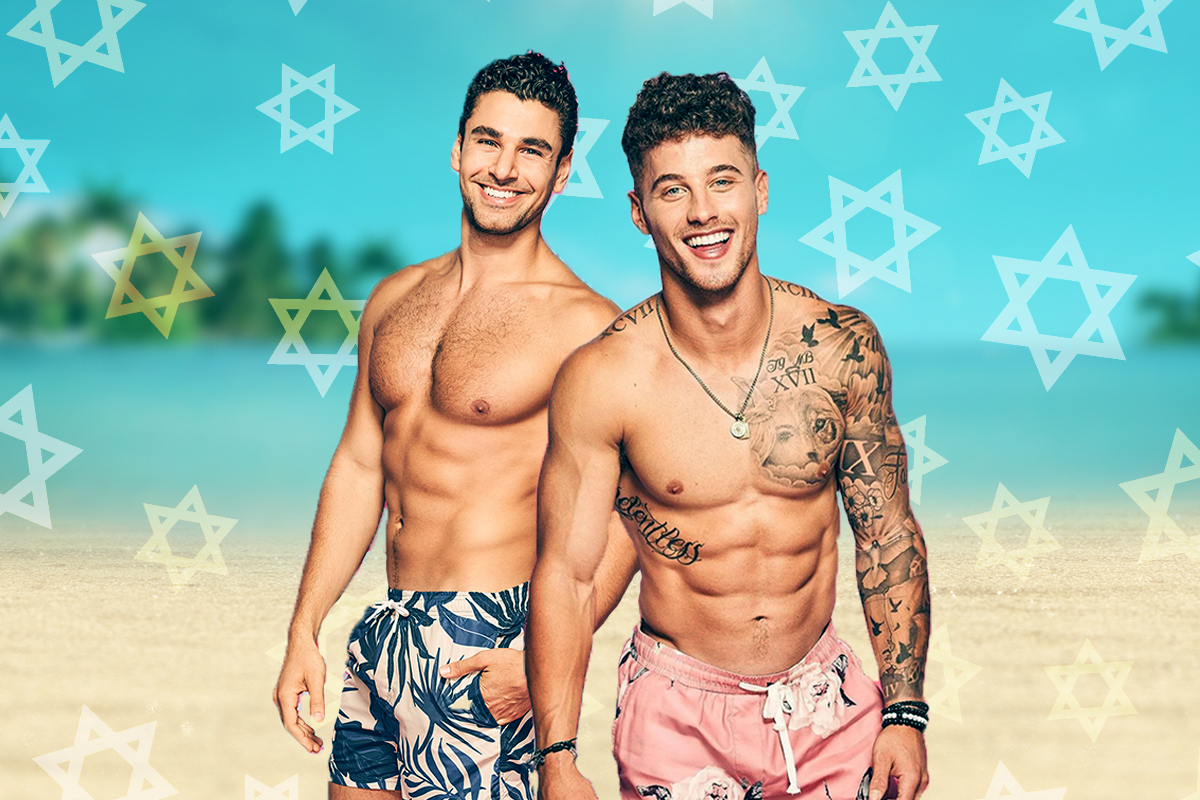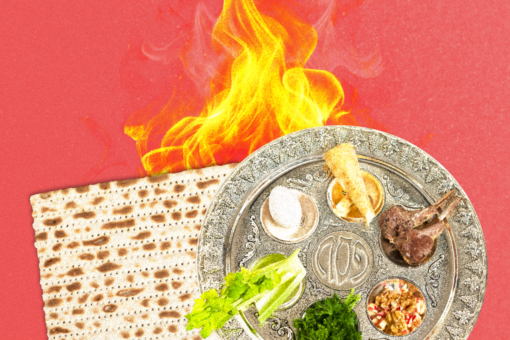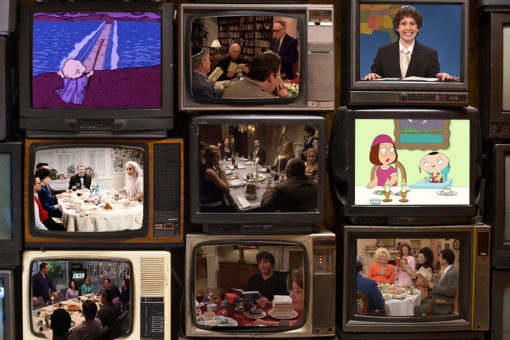Season three of “Love Island USA” is here, with beautiful “Islanders” who stay in a villa in Hawai’i as they search for love – and the chance to win $100,000.
Based on the hit British show of the same name, each season is filled with games and tests, which begin on day one, when Islanders immediately couple up based on physical attraction. Tests of loyalty — insert iconic season four U.K. Islander Georgia’s “I’m loyal babe” here — come in the form of new Islanders joining the villa mid-season, sending the either the women or the men to a different villa (Casa Amour) and challenges which reveal secrets and often lead to kissing someone outside your couple. Like “The Bachelor” and other dating shows, “Love Island” does not tend to have a lot of religious diversity (or diversity in general), with the majority of contestants, across seasons and countries, coming from a Christian background. Yet, remarkably, season three of “Love Island USA” is shaping up to be the most Jewish season in the Love Island universe.
When Josh Goldstein stepped into the villa at the start of this summer, he joined Eyal Booker (U.K. season four) on the list of Jewish Islanders — a list two names long. Hailing from Massachusetts, the 24-year-old was a college baseball player at Southern New Hampshire University Penmen. On day one, Josh immediately coupled up with Shannon St. Clair, and as of now, the pair has remained a couple for the entire season.
Casa Amor — where the men and women Islanders are separated, and new contestants are brought in for each group — brought in the second Jewish contestant of the season: Gabe Sadowsky. Sadowsky, currently based in Miami, is a 27-year-old personal trainer and a fashion model. He walked in and immediately acknowledged he was hoping to get to know Josh’s girlfriend, Shannon. Drama! While Gabe did not stay post-Casa Amor, the fact he was even on the show at the same time as Josh was a big deal. (I, personally, was hoping for a game of Jewish geography played between Josh and Gabe.)
Having two Jewish Islanders on the show is a first — a first that sounds extremely underwhelming in this day and age. But while it only takes a few Google searches to figure out that these Islanders are Jewish, the topic has not come up so far during the season. It is hard to know if this is due to the producers’ decisions of what to show, or if this is due to personal choice, but I would love to watch the Islanders discuss their favorite Jewish foods, or what growing up Jewish was like in their various hometowns. “Love Island” has been criticized for its lack of diversity and the ways it highlights racism in dating, so perhaps it should not be a shock that there’s no acknowledgement of Josh and Gabe’s Jewish identities. But we all can dream.
As a longtime viewer, seeing Jewish Islanders on the show brings me great joy. Since I began watching, there was something about “Love Island” that instantly took me back to my time at Jewish summer camp. While friends point out how ridiculous it seems to be so attached to a significant other so quickly, to me, the recoupling ceremonies are reminiscent of the intensity of those summer flings. When Islanders acknowledge red flags they see in their partner, but then instantly get back together with them, I could swear they have the same “camp goggles” over their eyes that my friends and I did at 15 years old. And the silly challenges? Straight out of summer camp. While they’re certainly far more risqué than anything camp staff would ever approve, watching them I am instantly transported back to my camp’s Maccabiah games. Of course, summer camp is not a universal experience for all Jews, but it’s the personal connection that comes up for me when watching the show.
Yet there’s something about “Love Island” that clearly hasn’t been welcoming to Jewish contestants. The lack of Jewish contestants could simply boil down to the small percentages of Jewish people in the countries the shows take place, but with only three Jews across over 10 seasons around the world since 2015, this seems unlikely to be the sole missing piece to the puzzle. Eyal Booker, the first Jewish Islander, lasted on season four for a respectable 25 days. Booker, who attended a Modern Orthodox Jewish day school growing up, was open about his Jewish identity and spirituality from the start. While some Islanders found aspects of his spirituality (which did not only pull from Judaism) to be off-putting, him being Jewish did not cause any tension or drama in the villa.
Even though “Love Island” is a reality TV show, seeing these Jewish Islanders on the small screen matters. Jewish contestants on a show that airs on primetime television means introducing people of all backgrounds to the Jewish experience. Despite how obvious this sounds, in much of the United States, there are still people who have never met Jews. This makes it a lot easier to fall into the trap of antisemitic stereotypes. Having more Jewish Islanders, and Jews on reality TV in general, means there is a place for people see the diversity and vibrance of the Jewish community. Having been the first Jew many of my fellow students met in college, I know that more authentic Jewish representation would have the power to create more understanding communities and reduce ignorance.
In the meantime, I am rooting for Josh to stay in the villa. And, OK, for a little bit more drama.



